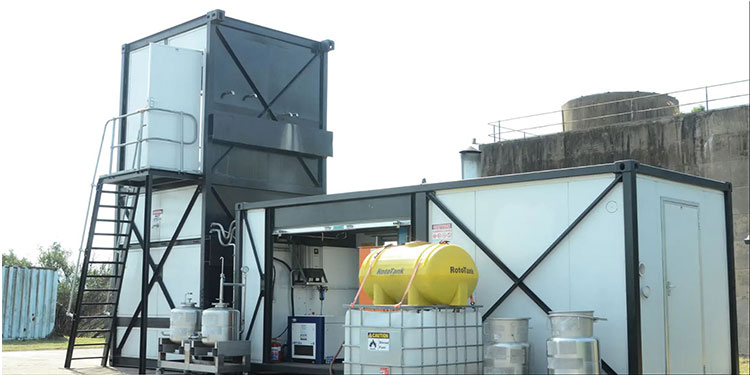
A novel approach has been devised to transform waste rich in cellulose fiber from pulp and paper mills into ethanol through a specialized fermentation procedure. The goal of the project is to turn paper sludge a byproduct of paper production with a high moisture content into ethanol. It is being led by the Paper Manufacturers Association of South Africa (PAMSA) in partnership with Mpact, Sappi Southern Africa and Stellenbosch University (SU). Sustainable aviation fuel, bio-based polymers and industrial chemicals are all made with this adaptable substance.
The method was demonstrated in the Sappi Tugela mill in Mandini, KwaZulu-Natal, with funding assistance from PAMSA and the Department of Science and Innovation (DSI). This initiative showcases a first for bioethanol production in South Africa and represents a substantial development from an academic research thesis to a commercial application.
Paper sludge, food waste and textile waste do not need to be pre-treated before hydrolyzed and fermented, according to SU research. By lowering greenhouse gas emissions, increasing water recovery and decreasing landfill waste, this procedure promotes environmental sustainability. It also backs industrial decarburization and the circular economy.
From an economic standpoint, the initiative holds promise since bioethanol produced from trash is highly valued in international markets. Additionally, it provides chances for upskilling, long-term employment and local economic growth. Currently in use, the 1,000-liter bioreactor in the mobile, containerized demonstration facility can handle about 100 kilograms of paper sludge every day. It is a component of a nine-month trial project at Sappi’s mill, with hopes to move on to a later project at Mpact’s springs, Gauteng, mill.
This programme addresses waste management concerns while simultaneously advancing sustainability and responsible consumption and production in line with the circular economy’s tenets. It highlights South Africa’s dedication to innovation and sustainability by fostering partnerships that bolster the role of science and technology in transforming manufacturing and propelling the country’s economy. Global attention has been bestowed upon the project for its environmental benefits, particularly with regard to GHG reduction and fossil fuel substitution.



